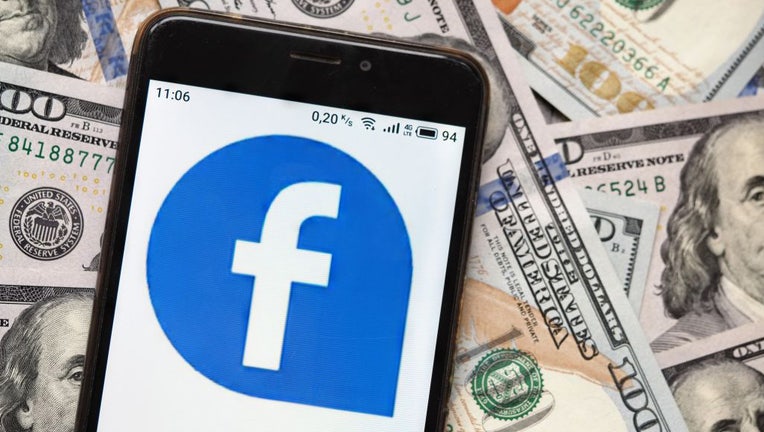How to get money from Facebook’s $725 million data privacy settlement

In this photo illustration a Facebook logo seen displayed on a smartphone with 100 dollar bills in the background. (Photo Illustration by Igor Golovniov/SOPA Images/LightRocket via Getty Images)
Facebook’s corporate parent has agreed to pay $725 million to settle a massive lawsuit over the privacy of user data.
The world’s largest social media platform was facing numerous lawsuits in recent years over how the company used personal information of its users. Many of the lawsuits were eventually consolidated into one class-action lawsuit, which has since been settled and will soon be paying out.
A settlement was reached by Meta Platforms, the holding company for Facebook and Instagram, back in December. Meta has expressly denied any liability or wrongdoing.
If you were a Facebook user in the United States between May 24, 2007, and December 22, 2022, you may be eligible for a cash payment from the settlement.
Here’s what you need to know.
Who is eligible for settlement money?
You may file a claim to receive settlement money if you had a Facebook account between May 24, 2007, and December 22, 2022.
Your claim is only valid if you lived in the United States during the entirety of that time.
RELATED: Facebook parent Meta to lay off 10K workers
How do I file a settlement claim?
Those who are eligible may fill out a claim form and submit it online, or mail a printed form.
Your claim form must be submitted – either postmarked or electronically – by August 25, 2023 to be considered.
To file you claim, you will need to provide your name, address, email and phone number, in addition to basic information about your Facebook profile:
- The email address associated with your longest-standing Facebook account
- Phone number associated with your longest-standing Facebook account
- The username associated with your Facebook account (which is different than your display name)
You can then choose how you’d like to receive your payment: prepaid card, PayPal, Venmo, Zelle, or direct deposit.
You can fill out the online claim form here and get directions about downloading and mailing a claim form here.
How much money will users get?
As mentioned, Meta has agreed to pay $725 million as part of the settlement agreement, though it’s not known yet how much individual users may get as part of the payout.
The amount depends on how many people submit valid claims, and also on how long you were a Facebook user during the class period (May 24, 2007, and December 22, 2022).
A final approval hearing isn’t scheduled until Sept. 7, meaning the eligible funds won’t be released until after a court decides to approve the settlement.
What is the lawsuit about?
The numerous lawsuits brought on behalf of Facebook users had to do with what Facebook (now known as Meta) was accused of doing with the personal information of its users.
The lawsuits alleged Meta shared user data and data about users’ friends without permission, and that the data that was unknowingly shared went to third parties.
The third parties included entities such as app developers, business partners, advertisers, and data brokers. Furthermore, the lawsuits alleged Meta didn’t monitor or enforce third-party access or use of the data received.
Perhaps one of the most recognized cases included is that of Cambridge Analytica, a firm that supported Donald Trump’s victorious presidential campaign in 2016.
The case sprang from 2018 revelations that Cambridge Analytica, a firm with ties to Trump political strategist Steve Bannon, had paid a Facebook app developer for access to the personal information of about 87 million users of the platform. That data was then used to target U.S. voters during the 2016 campaign that culminated in Trump’s election as the 45th president.
The lawsuit had asserted the privacy breach proved Facebook is a "data broker and surveillance firm," as well as a social network.
The company based in Menlo Park, California, previously said in a statement that it pursued a settlement because it was in the best interest of its community and shareholders.
This story was reported from Detroit. The Associated Press contributed.

